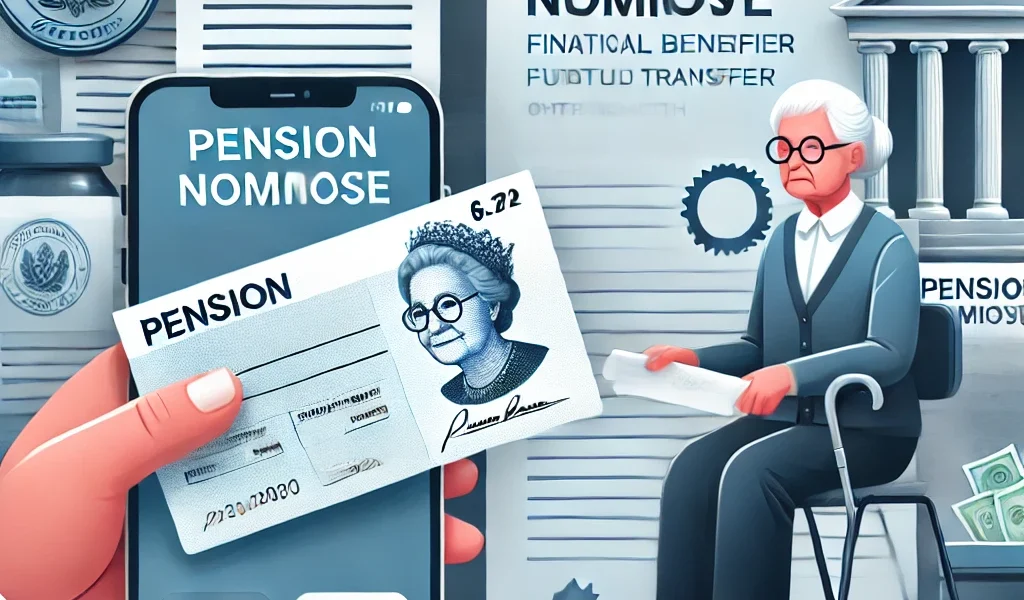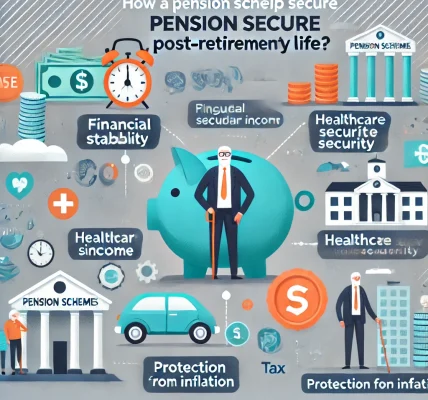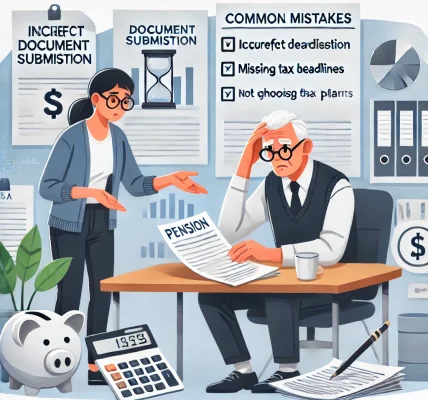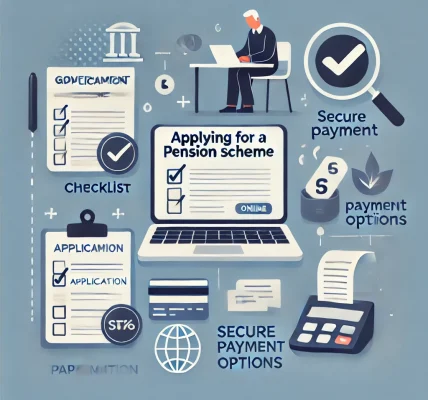Introduction
A pension is a vital financial resource that provides stability to retirees. However, what happens to the pension when the pensioner passes away? Many people are unaware of how pension benefits are transferred to nominees and what legal procedures are involved. In this blog, we will explain how pension benefits are handled after the pensioner’s death, the rights of the nominee, and the steps required to claim these benefits.
Understanding Pension Nominee Benefits
A nominee is a person designated by the pensioner to receive pension benefits after their demise. Different pension schemes have varying rules regarding nominee benefits, but the primary purpose is to ensure that the financial support continues for the dependent family members.
The benefits available to the nominee depend on:
- The type of pension scheme (government, private, EPF, NPS, etc.).
- Whether the pensioner opted for a joint pension or survivor benefits.
- Specific rules governing the pension plan.
Types of Pension and Their Nominee Policies
1. Government Pension Schemes
Government pension schemes like the Employees’ Pension Scheme (EPS), National Pension System (NPS), and state government pensions have clear policies regarding nominee benefits:
- EPS: Provides a monthly pension to the spouse and eligible children after the pensioner’s death.
- NPS: The nominee receives the lump sum amount if the pensioner passes away before retirement.
- State and Central Government Pensions: Offer family pensions to the spouse, children, or dependent parents.
2. Employee Provident Fund (EPF) Pension
If an EPF subscriber passes away, the nominee is entitled to:
- A lump sum payout from the EPF corpus.
- A pension if the deceased was enrolled under the Employees’ Pension Scheme (EPS).
3. Private Pension Schemes
Private pension plans often allow policyholders to nominate beneficiaries. If the pensioner has opted for an annuity plan with survivor benefits, the nominee continues to receive payments. Otherwise, the accumulated amount is transferred to the nominee as a lump sum.
4. Life Insurance Pension Plans
Some pension plans are linked to life insurance policies. In such cases:
- The nominee receives a death benefit payout.
- If the plan includes a survivor pension option, the pension continues for the spouse.
Who Can Be a Nominee?
Generally, a nominee is a close family member, such as:
- Spouse (most common nominee for pensions)
- Children (in case of no spouse)
- Dependent parents (if no spouse or children exist)
- Legal heirs (in the absence of other nominees)
It is crucial for the pensioner to update their nominee details regularly to avoid legal disputes after their passing.
Process of Claiming Pension After Death
The nominee must follow these steps to claim the pension:
Step 1: Obtain the Death Certificate
The first and most crucial document required is the death certificate of the pensioner. This must be obtained from the municipal corporation or local governing body.
Step 2: Contact the Relevant Pension Authority
- If the pensioner was a government employee, approach the respective pension disbursing authority (such as the State Treasury or EPFO).
- For NPS subscribers, the claim must be filed with the Pension Fund Regulatory and Development Authority (PFRDA).
- Private pension holders need to contact their respective insurance or pension provider.
Step 3: Submit Required Documents
The nominee must provide the following documents:
- Death certificate of the pensioner.
- Original pension passbook or policy document.
- Identity proof and address proof of the nominee.
- Bank details (for direct pension transfer).
- Nominee declaration or legal heir certificate (if required).
Step 4: Verification and Approval
The pension authority will verify the documents and process the claim. If all documents are in order, the nominee will start receiving benefits within 30 to 60 days.
Family Pension: Who Is Eligible?
In government pension schemes, a family pension is granted to the dependent family members. Eligibility criteria include:
- Spouse: Continues to receive 50% to 100% of the pension amount.
- Children: Eligible until they reach the age of 25 or get married.
- Disabled children: Receive pension benefits for life.
- Dependent parents: Eligible if there is no surviving spouse or child.
What Happens If No Nominee Is Registered?
If a pensioner has not nominated anyone:
- The legal heirs must provide a succession certificate.
- The pension amount may be transferred as per inheritance laws.
- In some cases, pension benefits may not be claimable without a nominee.
Key Points to Remember
- Regularly update nominee details to ensure smooth pension transfer.
- Nominees must initiate the claim process as soon as possible.
- Keep all pension documents and policy details safe.
- Legal heirs may need additional documents if no nominee is registered.
- Understanding pension schemes in advance helps in better financial planning.
Conclusion
The passing of a loved one is a difficult time, and financial security should not be an added burden. Knowing how pension nominee benefits work ensures that family members can claim what is rightfully theirs without unnecessary complications. Keeping nominee details updated and being aware of the claim process can make pension benefits accessible without legal hurdles.
By planning ahead and understanding the rules, you can secure your family’s financial future even in your absence.




